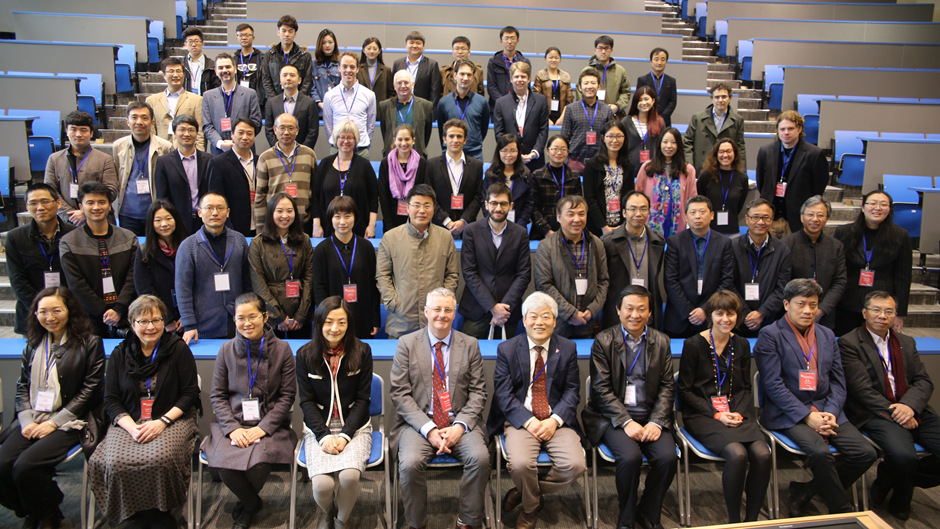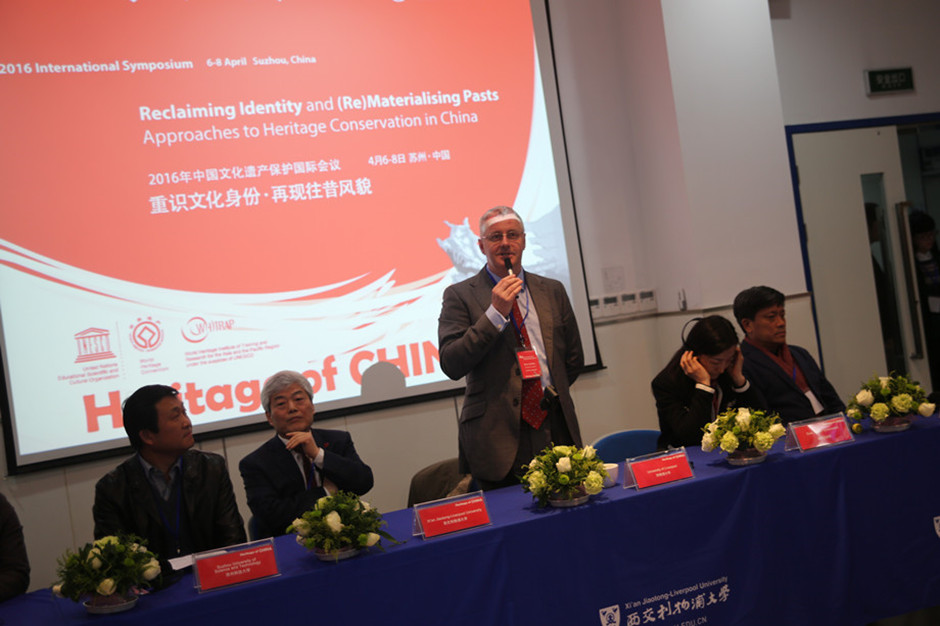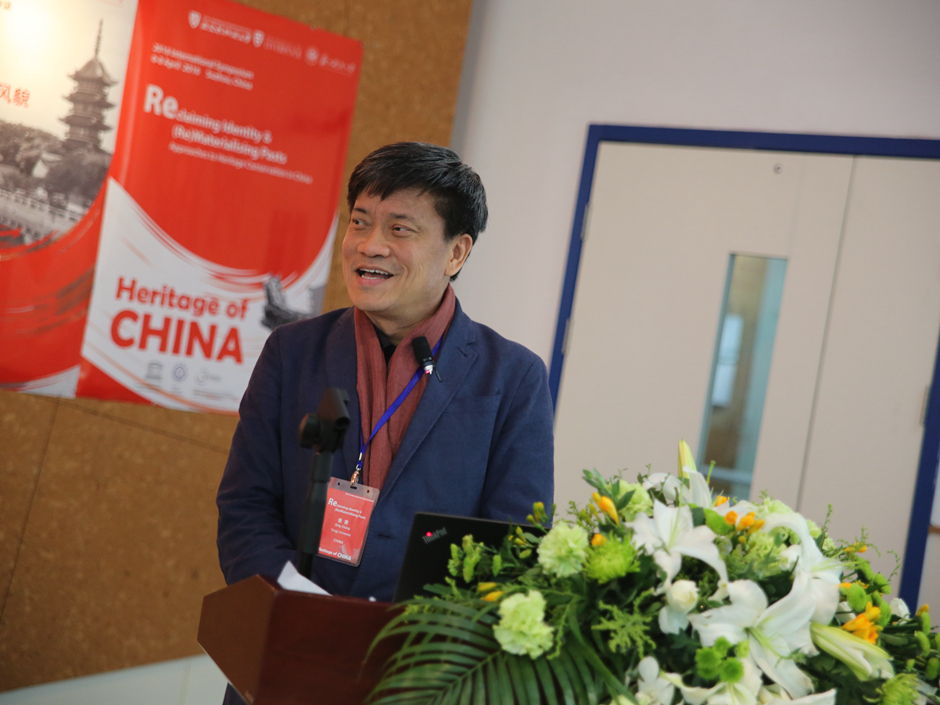11 Apr 2016
An international symposium exploring heritage conservation in China was held at Xi’an Jiaotong-Liverpool University from 6 to 8 April, attracting more than 100 academics and practitioners worldwide.

The symposium, which was held under the theme of ‘Reclaiming Identity and (Re) Materialising Pasts: Approaches to Heritage Conservation in China’, was jointly organised by XJTLU, the University of Liverpool and the Suzhou University of Science and Technology, with support from UNESCO World Heritage Institute of Training and Research – Asia and Pacific (WHITRAP Suzhou).
During the three-day conference, scholars and experts from China, the United States, the United Kingdom, Germany, Switzerland, Sweden, Norway, Spain and Australia, amongst others, contributed critiques and case studies on the current practice of cultural heritage conservation in China. Participants from international, national and local institutes from both the public and private sectors in Suzhou also attended the symposium.

Modern China reawakened its interest in heritage protection in the late 1970s. The scope of heritage protection has been expanded significantly over the past four decades from archaeological sites to conservation areas, from monumental to ordinary, from tangible to intangible, and from urban to rural heritage.
Dr Yiwen Wang, from the Department of Urban Planning and Design at XJTLU and a member of the event’s organising committee, said: “China has become preoccupied with reworking its past and made notable achievements in heritage conservation in recent years. However, due to the language barrier, as well as difference in conceptualising the notion of heritage and deploying arguments between eastern and western countries, international academic circles have limited access to understand Chinn’s somewhat peculiar approaches to conservation”.
“This symposium is aimed to build up a platform for scholars and experts from China and abroad to discuss theoretical and practical issues and core values of cultural heritage conservation in China. And it is an attempt to formulate a discourse on contemporary Chinese heritage conservation from an international perspective.”

Professor Youmin Xi, Executive President of XJTLU, welcomed all the participants and spoke about the need to discover the best way to enhance public awareness of the value of historic and cultural heritage. He said the event would bring scholars and experts together to “discuss how to avoid making mistakes in the process of rapid urbanisation and modernisation in China and how to draw lessons from global experience to make Chinese cultural heritage protection and inheritance more valuable for future social development.”
Professor Barry Godfrey, Professor of Social Justice and Associate Pro Vice Chancellor (Research and Impact) for the Faculty of Humanities and Social Sciences at the University of Liverpool, said that heritage conservation was a very important topic in the UK and that was a way of helping the outside world better know the UK.
He also spoke about the conflict between cultural heritage conservation and urban development. “Liverpool also faced such problems during [its] urban development. For example, Liverpool wanted to build new harbours to further develop the economy and in the process some historical waterfront buildings, which are part of the identity of Liverpool, were demolished. However, we cannot provide career opportunities if we don’t build new harbours” he said.

Yiqun Huang, Deputy Director of Gusu District Ancient City Conservation and Planning and Land Bureau, said that according to economic development and social demand, the government will focus on reconciling the relationship between heritage protection and urban renewal, as well as historical and cultural inheritance.
On the first day of the Symposium, Professor Qing Chang, an academician of the Chinese Academic of Science and chief editor of “Heritage Architecture”, delivered a keynote speech entitled with “Reflecting Basic Concept of Built Heritage”.
Professor Chang said: “After 30-year’s urban transformation, the Chinese government put forward the notion of ‘city repair’, focused on old cities and historical districts whose functions were declining. I think the notion deals with issues about urban historic environment and it should include aspects of preservation, restoration and regeneration.”

On the first two days of the Symposium, a number of presentations were given on the three sub-themes of sanitised narratives of heritage, politics of heritage and commodification of heritage.
A half-day tour in historic centre of Suzhou was organised on the third day of the event, which was followed by an Expert Forum on conservation and management issues of Suzhou historic city at Couple’s Retreat Garden (World Heritage Site).
11 Apr 2016








